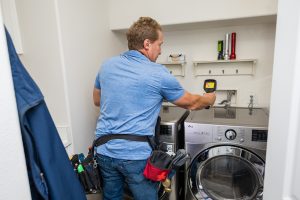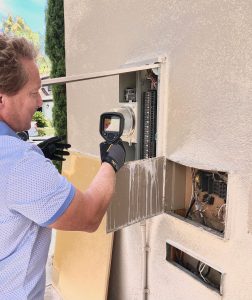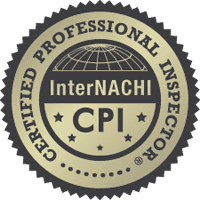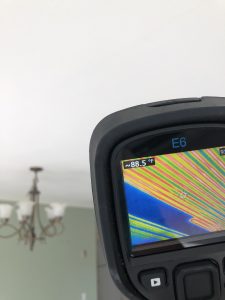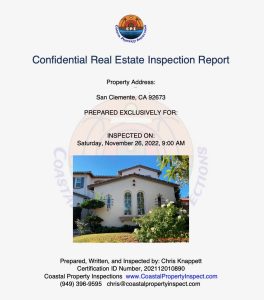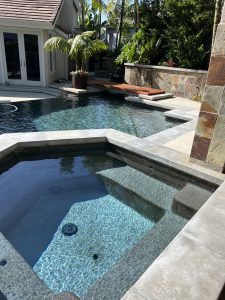
The Importance of Pool and Spa Inspections by a Certified Home Inspector
Are you in the process of buying a new home with a pool or spa? Perhaps you’re considering whether or not to include a pool inspection as part of your home inspection checklist. While it may be tempting to skip this step to save time and money, having a certified home inspector who is also a certified pool inspector conduct a thorough examination of the pool and spa can save you from potential headaches and costly repairs down the line. In this blog post, we’ll explore what goes into a full pool inspection, why it’s essential for a home buyer to have the pool and spa inspected, and the pros and cons of having an inspection versus not having one.
The Full Pool Inspection Process
A full pool inspection is a comprehensive assessment of the pool and spa, covering various critical aspects that ensure the safety, functionality, and overall condition of the aquatic amenities. When a certified home inspector takes on the role of a pool inspector, they bring their expertise to examine the following:
- Structural Integrity: The inspector will check for any cracks, leaks, or signs of damage in the pool’s structure, ensuring that there are no underlying issues that could lead to costly repairs or safety hazards.
- Equipment Evaluation: The pool’s equipment, including pumps, filters, heaters, and control systems, will be inspected for proper functioning and efficiency. Faulty equipment can result in poor pool performance and increased energy consumption.
- Safety Features: The presence and effectiveness of safety features such as handrails, safety covers, anti-entrapment devices, and fencing will be assessed to ensure compliance with local regulations.
- Water Quality: The inspector will test the water quality to determine if the chemical balance is appropriate, ensuring a safe and healthy swimming environment.
- Electrical Systems: Any electrical components related to the pool, such as lighting and wiring, will be inspected to prevent potential hazards.
- Deck and Surroundings: The pool deck and surrounding areas will be examined for any damage or hazards that could pose a safety risk or impact the pool’s integrity.
The Importance of Pool and Spa Inspections for Home Buyers
As a home buyer, you might be wondering why it’s crucial to have the pool and spa inspected as part of the overall home inspection. Here are some compelling reasons:
- Safety First: Pools and spas can present various safety hazards, and ensuring that all safety features are in place and functional is essential, especially if you have young children or pets.
- Avoid Surprise Expenses: An inspection can reveal any hidden issues or potential problems, allowing you to negotiate repairs or adjustments with the seller before finalizing the purchase.
- Peace of Mind: Knowing that the pool and spa are in good condition and meet safety standards provides peace of mind for you and your family.
- Long-Term Investment Protection: Pools and spas are significant investments, and a thorough inspection helps protect your investment by identifying issues that could impact their lifespan.
- Insurance Requirements: Some insurance companies may require a pool inspection before providing coverage, so having one done during the home inspection process can streamline the insurance application.
Pros and Cons of Having a Pool and Spa Inspection
Now that we understand the importance of pool and spa inspections, let’s weigh the pros and cons of having an inspection versus not having one.
Pros of Having an Inspection:
- Safety Assurance: You can ensure that the pool and spa are safe for use, reducing the risk of accidents or injuries.
- Negotiation Power: If any issues are found, you can negotiate with the seller to cover repair costs or adjust the home’s price accordingly.
- Cost Savings: Identifying problems early on can save you from expensive repairs or replacements in the future.
- Insurance Compliance: Some insurance providers require a pool and spa inspection, so having it done in advance can facilitate the insurance process.
Cons of Having an Inspection:
- Additional Cost: Including a pool inspection in the overall home inspection will incur an additional expense.
- Time-Consuming: A thorough inspection can add an additional 30-45 minutes to the overall home inspection time.
- False Sense of Security: Relying on a visual inspection alone might not reveal all potential issues, giving a false sense of security.
Conclusion
When a certified home inspector such as Chris Knappett with Coastal Property Inspections is also a certified pool inspector, they bring valuable expertise to thoroughly assess the pool and spa’s safety, functionality, and overall condition. As a home buyer, investing in a pool inspection during the home inspection process is a wise decision that can provide peace of mind, safety assurance, and potential cost savings. By understanding the pros and cons of having an inspection versus not having one, you can make an informed choice to protect your investment and ensure a happy and worry-free experience with your new home’s aquatic amenities.
For more information on pool and spa inspections, click the link or give us a call at 949-401-8996 or Chris directly at 949-396-9595

